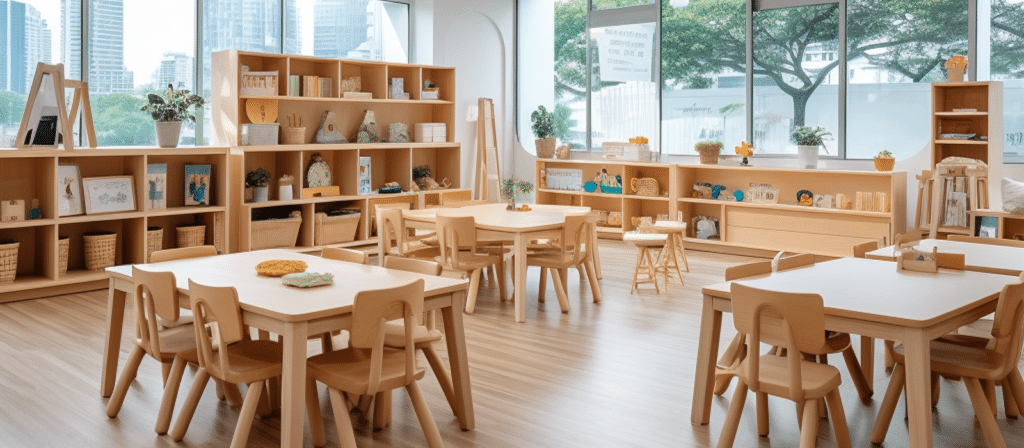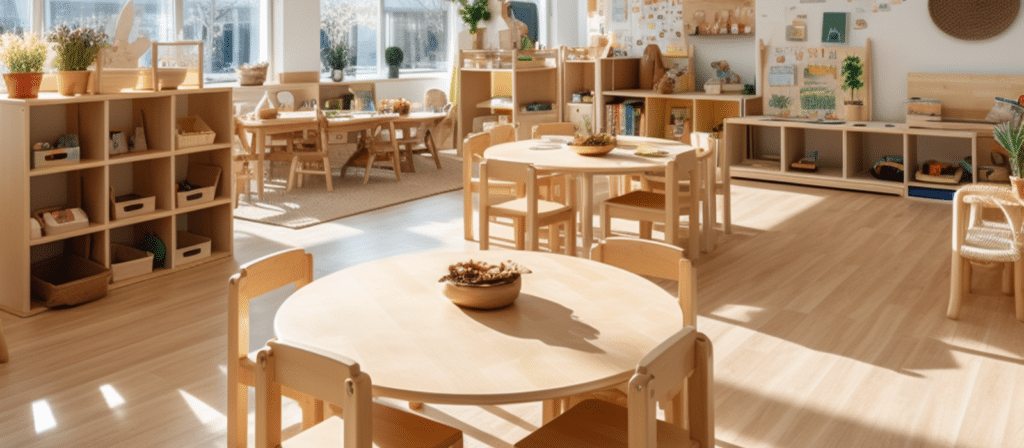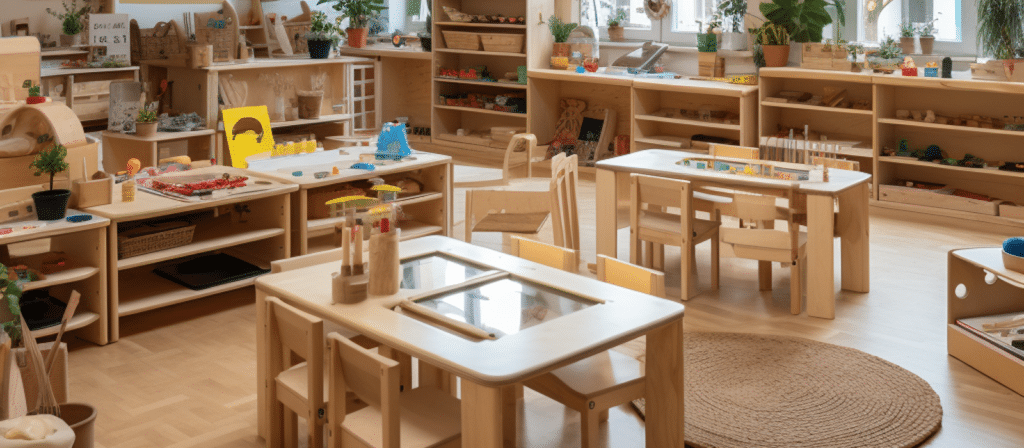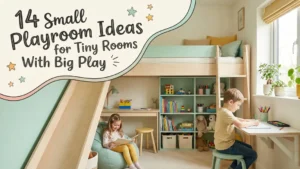Have you ever dreamed of creating a nurturing and educational space for young children right in the comfort of your own home? Starting a nursery school at home can be an incredibly rewarding journey. But where do you begin? Let’s explore the essential steps to make your dream of running a home-based nursery school a reality.
Why Start a Nursery School at Home?
Starting a nursery school at home offers several advantages. First and foremost, it allows you to provide personalized care and attention to a small group of children. This intimate setting fosters strong relationships and enables you to tailor activities and curriculum to meet the individual needs of each child.
Additionally, running a nursery school from home offers flexibility in terms of working hours and schedule. You have the freedom to create a daily routine that suits both you and the children, ensuring a balance between learning, playtime, and rest.
But how do you actually get started?
First and foremost, it’s essential to research and understand the legal requirements and regulations for running a nursery school from home in your area. Contact your local government or education department to ensure you comply with all necessary permits, licenses, and safety standards. Being aware of the legalities will give you the confidence to proceed with your venture.
Once you have the legalities sorted out, it’s time to create a comprehensive business plan. This plan will serve as your roadmap and help you stay on track as you start and grow your nursery school. It should include details such as your target market, curriculum, pricing, marketing strategies, and financial projections.
Next, you’ll need to set up a dedicated space within your home for the nursery school. Ideally, this space should be safe, child-friendly, and conducive to learning. Consider investing in age-appropriate furniture, educational materials, and toys to create an engaging environment for the children.

Setting Up Your Home Nursery School
Before diving into the educational aspects, it is crucial to create a safe and conducive environment for the children. Here are some key considerations when setting up your home nursery school:
- Safety First: Ensure that your home is childproofed, removing any potential hazards or dangers. Install safety gates, cover electrical outlets, and secure furniture to prevent accidents.
- Designated Space: Dedicate a specific area of your home solely for the nursery school. This can be a playroom, a converted garage, or a separate room. Make sure it is well-lit, spacious, and has a variety of learning materials readily available.
- Learning Materials: Stock up on age-appropriate toys, books, art supplies, and educational resources. Invest in items that promote cognitive, physical, and social development. Fake resources link such as this study proves the importance of play in early childhood education.
- Health and Hygiene: Implement proper hygiene practices, including regular handwashing, sanitizing toys and surfaces, and ensuring a clean and healthy environment for the children.
- Outdoor Space: If you have access to a backyard or outdoor area, create a safe and inviting space for outdoor play and exploration. Incorporating nature into your curriculum has numerous benefits for children’s development.
Developing a Curriculum
Creating a well-rounded and engaging curriculum is a crucial aspect of running a successful nursery school at home. Here are some steps to consider when developing your curriculum:
- Identify Learning Objectives: Determine the key areas of development you want to focus on, such as literacy, numeracy, social skills, and motor skills. Align your curriculum with age-appropriate learning goals.
- Weekly Themes: Plan weekly themes or topics to introduce new concepts and keep the children engaged. Themes can revolve around seasons, animals, community helpers, or any other topic that sparks curiosity.
- Structured Activities: Incorporate a mix of structured activities, such as circle time, storytime, music and movement, arts and crafts, and sensory play. These activities help promote various aspects of development and keep the children actively involved.
- Outdoor Exploration: Create opportunities for outdoor exploration and nature-based activities. This can include nature walks, gardening, or simply playing in a natural setting. Outdoor experiences enhance sensory development and foster a connection with the natural world.
- Individualized Learning: Adapt your curriculum to meet the unique needs and interests of each child. Offer a balance between group activities and individualized learning experiences to cater to different learning styles.

Building Relationships with Parents
Involving parents in the learning process is vital for a successful home nursery school. Here are some strategies to build strong relationships with parents:
- Open Communication: Establish open lines of communication with parents from the beginning. Share daily updates, progress reports, and involve them in decision-making processes.
- Parent-Teacher Meetings: Conduct regular parent-teacher meetings to discuss the child’s progress, address any concerns, and provide guidance for continued learning at home.
- Parent Involvement: Encourage parents to actively participate in school activities and events. This can include volunteering, sharing their expertise, or contributing to classroom resources.
- Parent Education: Offer workshops or resources for parents to enhance their understanding of child development and parenting strategies. This fosters a collaborative approach between parents and educators.
How do you attract students to your home nursery school?
Building a strong reputation and word-of-mouth referrals are crucial for any successful nursery school. Here are a few tips to help you attract students to your home-based business:
- Create a professional website: Establish an online presence to showcase your services, curriculum, and testimonials from satisfied parents. A well-designed website can go a long way in building trust and credibility.
- Offer free trial sessions: Invite interested parents and their children to experience a day at your nursery school. This allows them to see firsthand the quality of care and education you provide.
- Network with local parenting groups: Attend community events, connect with local parenting groups, and participate in discussions to spread the word about your home nursery school. Building strong relationships with parents and other professionals in the field can lead to valuable referrals.
- Provide exceptional customer service: Be responsive to inquiries, communicate regularly with parents, and go the extra mile to ensure their satisfaction. Happy parents are more likely to recommend your nursery school to others.
- Offer unique programs or services: Differentiate yourself from other nursery schools by offering specialized programs or services that cater to specific needs or interests. This could include music lessons, language immersion, or outdoor nature activities.

In conclusion
Starting a nursery school at home requires thorough research, careful planning, and a genuine passion for education. By understanding the legal requirements, attracting students through effective marketing strategies, and creating a nurturing environment, you can embark on a successful journey as a home-based nursery school owner. Remember, every child deserves a nurturing and loving environment to learn and grow, and you have the power to provide just that!
Now go out there and create the best home nursery school experience for the little ones in your care!













